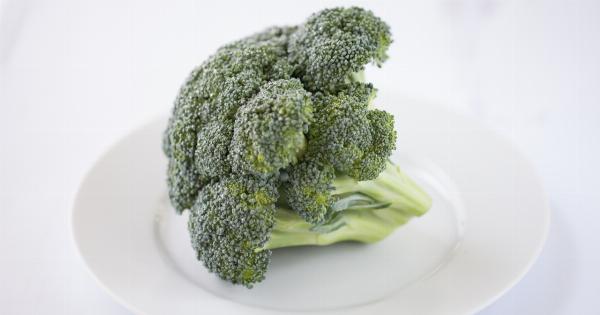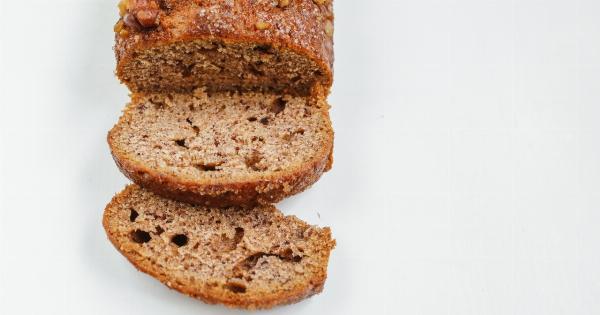Diabetes is a chronic disease that affects the way our bodies regulate blood sugar levels.
It is characterized by high blood sugar, either because the body doesn’t produce enough insulin or because the cells don’t respond to the insulin that is produced. While there are various factors that contribute to developing diabetes, including genetics, lifestyle choices play a crucial role in its prevention. One of the most effective ways to prevent diabetes is through a healthy diet.
Here are some foods you should consider adding to your diet to lower your risk of developing diabetes:.
1. Leafy Green Vegetables
Leafy green vegetables such as spinach, kale, and collard greens are rich in nutrients and low in calories. They are an excellent source of vitamin C, vitamin K, and various minerals.
They also contain antioxidants that have been linked to a reduced risk of developing type 2 diabetes. Including these vegetables in your diet can help regulate blood sugar levels and provide other important health benefits.
2. Whole Grains
Whole grains like brown rice, quinoa, oats, and whole wheat bread are much better for diabetes prevention compared to refined grains. Whole grains have a lower glycemic index, which means they cause a slower rise in blood sugar levels.
They also contain more fiber and nutrients, making them a healthier choice overall. Including whole grains in your meals can help control blood sugar and lower your risk of diabetes.
3. Lean Proteins
Including lean proteins such as chicken, fish, tofu, and beans in your diet can help prevent diabetes. Protein helps stabilize blood sugar levels and promotes a feeling of fullness, which can prevent overeating.
It is important to choose lean sources of protein to avoid consuming excessive amounts of unhealthy fats. Including a moderate amount of protein in each meal can contribute to a balanced diet and minimize the risk of developing diabetes.
4. Healthy Fats
Healthy fats, such as those found in avocados, nuts, and olive oil, can be beneficial for diabetes prevention. These fats have been shown to improve insulin sensitivity and help regulate blood sugar levels.
Including moderate amounts of healthy fats in your diet can also help you feel satisfied after meals, reducing the temptation to indulge in unhealthy snacks or desserts.
5. Berries
Berries, including blueberries, strawberries, and raspberries, are packed with antioxidants, vitamins, and fiber. They have a lower glycemic index compared to many other fruits, meaning they have a smaller impact on blood sugar levels.
Including berries in your diet can help improve blood sugar control and reduce the risk of developing diabetes.
6. Yogurt
Yogurt, especially Greek yogurt, is a great choice for diabetes prevention. It is low in carbohydrates and high in protein, making it a favorable option for blood sugar regulation.
Yogurt also contains probiotics, which have been shown to improve insulin sensitivity and reduce inflammation in the body. Opt for plain, unsweetened yogurt to avoid added sugars.
7. Cinnamon
Cinnamon has been shown to lower blood sugar levels and improve insulin sensitivity. Including cinnamon in your diet can help control blood sugar and reduce the risk of developing diabetes.
You can sprinkle it on oatmeal, yogurt, or add it to your morning coffee or tea for a flavorful and healthy addition.
8. Green Tea
Green tea is known for its numerous health benefits, including its potential in diabetes prevention. It contains polyphenols, antioxidants that have been shown to improve insulin sensitivity and regulate blood sugar levels.
Drinking green tea regularly can be a simple and enjoyable way to reduce the risk of diabetes.
9. Garlic
Garlic has been used for its medicinal properties for centuries. It can help improve insulin sensitivity and lower blood sugar levels. Including garlic in your cooking or taking it as a supplement may have beneficial effects in preventing diabetes.
10. Water
While not a food, water is essential for overall health, including diabetes prevention. Staying hydrated helps regulate blood sugar levels and promotes proper functioning of bodily systems.
Drinking an adequate amount of water daily is crucial for maintaining optimal health and reducing the risk of diabetes.
Foods to Avoid for Diabetes Prevention
In addition to incorporating diabetes-preventing foods into your diet, it is important to avoid certain foods that can increase the risk of developing diabetes. Here are some foods you should try to limit or avoid:.
1. Sugary Beverages
Sugary beverages, such as soda, fruit juices, and energy drinks, are high in added sugars and provide little nutritional value. Consuming excessive amounts of sugary beverages has been linked to an increased risk of developing type 2 diabetes.
Opt for water, unsweetened tea, or other low-sugar alternatives.
2. Processed and Refined Carbohydrates
Processed and refined carbohydrates, including white bread, white rice, and sugary cereals, can cause a rapid rise in blood sugar levels. They lack essential nutrients and fiber, making them less favorable for diabetes prevention.
Instead, choose whole grains and unprocessed carbohydrates for a slower release of glucose into the bloodstream.
3. Trans Fats
Trans fats are artificial fats found in fried foods, baked goods, and certain margarines. They have been shown to increase inflammation, insulin resistance, and the risk of developing diabetes.
Avoiding or minimizing intake of trans fats is crucial for overall health and diabetes prevention.
4. Highly Processed Foods
Highly processed foods, such as fast food, frozen meals, and packaged snacks, often contain excessive amounts of added sugars, unhealthy fats, and refined carbohydrates.
These foods have been associated with an increased risk of obesity, insulin resistance, and type 2 diabetes. Choosing whole, unprocessed foods whenever possible can significantly lower the risk of developing diabetes.
5. Alcohol
Moderate alcohol consumption is often considered acceptable, but excessive intake can lead to various health problems, including an increased risk of diabetes. Heavy drinking can impair insulin production and increase blood sugar levels.
It is important to drink alcohol in moderation or avoid it altogether to reduce the risk of diabetes and maintain overall health.
6. Sugary Snacks and Desserts
Foods high in added sugars, such as cookies, cakes, candy, and pastries, can cause rapid spikes in blood sugar levels. Consistently consuming these sugary treats can lead to insulin resistance and an increased risk of developing diabetes.
Opt for healthier snacks like fresh fruits, nuts, or yogurt to satisfy your sweet tooth.
7. Saturated and Trans Fats
Saturated fats, commonly found in red meat, full-fat dairy products, and certain oils, can increase the risk of type 2 diabetes. Similarly, trans fats found in fried and processed foods can have a harmful impact on insulin sensitivity.
Limiting your intake of saturated and trans fats is essential for diabetes prevention.
8. Salty Foods
While not directly linked to diabetes, consuming excessive amounts of sodium can negatively affect blood pressure and increase the risk of heart disease. People with diabetes are already at a higher risk of developing heart problems.
Opt for low-sodium options and try to limit your intake of salty snacks and processed foods.
9. High-Carb Foods
Foods high in carbohydrates can cause a rapid increase in blood sugar levels, especially in people with diabetes or insulin resistance. It is important to choose the right carbohydrates and consume them in moderation.
Focus on whole grains, legumes, and non-starchy vegetables, and be mindful of portion sizes to keep blood sugar levels stable.
10. Fruit Juice
While fruits are generally healthy, fruit juice can be problematic for those at risk of diabetes. Fruit juices are often high in sugar and lack the fiber found in whole fruits, leading to a rapid increase in blood sugar levels.
It is generally better to consume whole fruits instead of juice to benefit from their natural fiber and slower release of sugar.



























